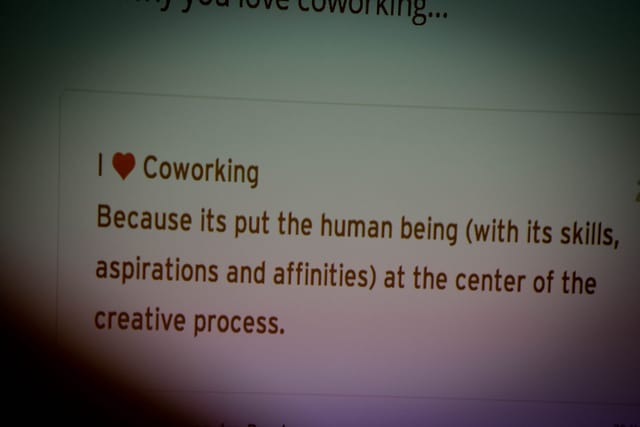When you have to write a post, you’ll want to do everything but write that blog post.
It is much easier to think about stuff than writing it.
The main reason only a few people do well at blogging comes down to just a few people execute and post stuff.
Everyone else licks blogging wounds, looks for SEO tricks and talks about blogging, without doing much blogging.
And that included me.
I found it very hard to write and post stuff, but every time I ship a blog post a good thing happens.
Sometimes this is a good business thing, but most of the time a handful of people talk about my post.
When I was deep in depression, I blogged about how I was doing. This wild act of sharing connected me on a deep level with people close to me and also people I have never met.
There are a few businesses that blog on a consistent basis.
They get to inform potential customers, build a stronger relationship and save a crapload of time in their sales cycle.
By now I have met enough people who got down to posting on their site and everything changed for them within six months.
How To Kill Writers Block And Thrive
1. Just write.
Open a page and write something like:
“I don’t know where to start I wanted to write a blog about writer’s block, I mean beating writer’s block but ironically I don’t know where to start, so I guess I’ll start here, and wait, oh wow I’m in action already…”
You will have to get over the fact you’ll need to delete a lot of stuff.
But you will have written something down, and starting is always half of the battle won.
2. Know where you are going.
And when you first sit down, you won’t know where you are going, which is why you have to work out where you are going.
By this I mean get some paper or a google doc and scribble down where you could go.
What topic is your blog or website designed around?
What would the next ten posts be?
When you realise you don’t have ten posts on that subject, it will be the reality check you need.
And when you recognise you have 25 blog posts, you’ll know where you are going.
Both are great.
You’ll find brilliant methods about this on the roadmap on the Fizzle website.
Committing to the Fizzle Roadmap is one of the single best things I’ve ever done for my professional freelancer life.
3. Accept your limitations at this moment in time.
When I am too busy, anxious or pulled in too many directions blogging does not happen for me. It takes me ages to get into the right place, and then I polish it too much, and then I think everyone will hate me.
It is not the best place for me to go.
So I don’t.
What I do is accept it is not going to happen today and work out when it is going to happen.
Keep a notebook either online on in real life
In this notebook write the beginning, middle and end of a post after you have had the idea.
Let it sit and then come back to it a few days later; I find I can write the blog post in one go after doing this.
Or write a paragraph about each idea and see how far you get.
I swear the fear of finding out our concept is not going to work is ten times the fear of posting, this way you can uncover the weaknesses in your work.
4. Get serious
I am writing this standing in my kitchen and have set a timer. I keep wandering off to see what else I can do instead of this post and then make myself carry on writing.
I know what I want to say and why I want to write this post.
But I get imposter syndrome, scared and all sorts of things that are mental distractions from doing the work of writing this post and publishing it.
Luckily I have got serious and cut out everything that could distract me from finishing this and posting it.
5. Eliminate distractions.
Which builds upon point five, get serious.
Decide what tool, notebook and platform you are going to use.
Choosing the colour of your business card, writing app and website is a small but lethal form of distraction from the real work of putting your heart and soul into creating content.
Whether your art is words on a blog, video on Youtube or a podcast messing about between Google Doc and Evernote is a waste of your precious creative energy and time.
You get results and learn by doing, not by preparing and choosing, unless you are doing a space jump, then you need to do a lot of preparation.
6. Anyway, how come you get writer’s block?
You don’t talkers block, do you?
Featured Image Photo by Ben White on Unsplash
We’ll be deep diving into “How To Kill Writers Block And Thrive” next week at London Bloggers Meet Up at The Studio in Camden, the new home for all our coworking and Ouishare London antics.

